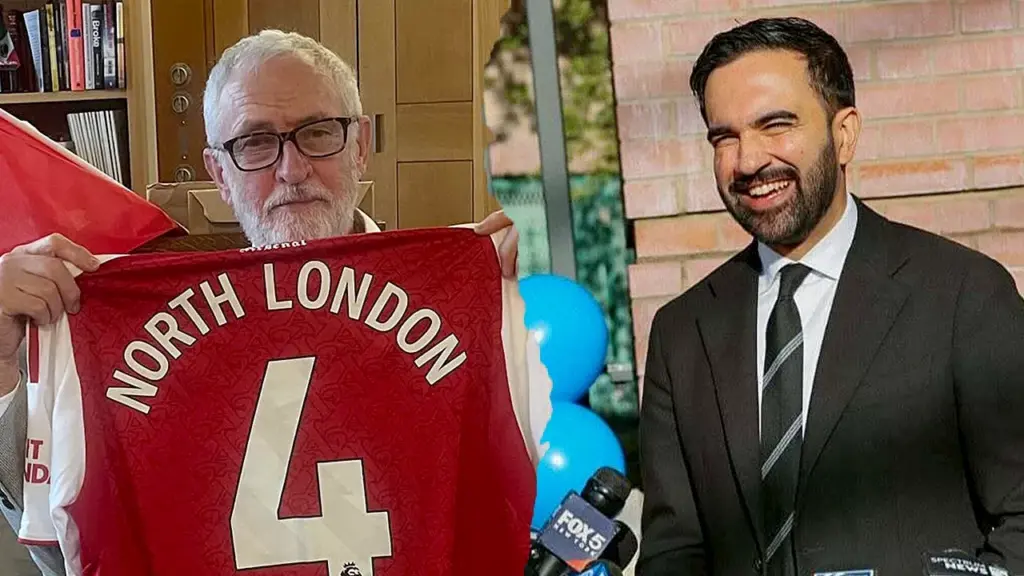
Progressive candidate Zohran Mamdani secured a significant victory in New York’s Democratic mayoral primary on June 27, 2023, defeating former Governor Andrew Cuomo by more than seven points. This unexpected outcome has prompted discussions among activists and writers regarding the role of Mamdani’s strong support for Palestinian rights in his campaign.
In the lead-up to the primary, Mamdani faced accusations of antisemitism from Cuomo’s supporters, primarily due to his past advocacy for boycotting Israel over human rights violations and his criticisms of Israeli actions following the October 7, 2023 attacks. He also sponsored legislation aimed at penalizing nonprofits that support illegal Israeli settlements in the West Bank. Despite these challenges, Mamdani’s stance resonated with a substantial number of voters, including many in New York’s large Jewish community.
According to Beth Miller, political director of Jewish Voice for Peace Action, Mamdani’s success indicates a change in voter sentiment. “Cuomo was counting on the idea that Zohran’s support for Palestinian rights would be a liability for him, but what last night showed was that that’s not true,” she stated in comments to Al Jazeera.
A Quinnipiac poll conducted from June 22 to 24 revealed that 63% of Democratic voters believe the United States is “too supportive of Israel,” an all-time high. This sentiment is reflected in local attitudes toward the mayoral primary, as a May 28 poll by Emerson College found that 46% of surveyed Democrats did not consider it important for the city’s next mayor to hold pro-Israel views.
Mamdani’s characterization of Israeli actions in Gaza as “genocide” and “war crimes” aligns with a growing number of Democratic voters. Cuomo, who previously defended Israeli Prime Minister Benjamin Netanyahu against war crimes allegations, argued that such language exacerbates antisemitic hate crimes domestically.
“They made it a referendum on anti-Zionism being antisemitism,” said journalist Spencer Ackerman, a supporter of Mamdani, in an interview with The Forward. “They lost.”
Throughout his campaign, Mamdani remained steadfast in his views, refusing to retreat from his positions even in the face of criticism. Heba Gowayed, a sociology professor at the City University of New York, remarked on his authenticity, stating, “The fact that he refused to back down from his position on Palestine is huge.” This determination created a movement that supported his stance rather than sidelined it.
Mamdani’s victory was bolstered by significant Jewish support. A poll from May indicated he was the second-most popular candidate among Jewish New Yorkers, following Cuomo. He also cultivated a crucial alliance with Brad Lander, New York’s highest-ranking Jewish elected official, who endorsed Mamdani and encouraged his supporters to rank him favorably. Lander countered accusations from Cuomo’s camp, suggesting the former governor was attempting to exploit antisemitism for political purposes.
Endorsements from progressive Jewish organizations, such as JVP Action and Jews for Racial and Economic Justice, underscored a shift in priorities among Jewish voters. Sophie Ellman-Golan, a spokesperson for JFREJ, expressed that Jewish New Yorkers are concerned with broader issues beyond Israel. “This is not to say these issues don’t matter to Jews, of course they do, but we are also New Yorkers, and we are dealing with the same material conditions that other New Yorkers are,” she conveyed to The Times of Israel.
Ellman-Golan further emphasized the common aspirations shared among New Yorkers. “Jewish New Yorkers are just like other New Yorkers. We also want affordable housing and childcare, and excellent public transit, and for this city to be a place where we can build a future,” she noted. “That’s what Zohran ran on, and that’s why New Yorkers—Jewish and non-Jewish alike—voted for him.”
Mamdani’s victory signals a potential shift in the political landscape, particularly regarding the discourse surrounding Palestine within the Democratic Party. As progressive values continue to evolve, the implications of Mamdani’s campaign may resonate far beyond New York City.







